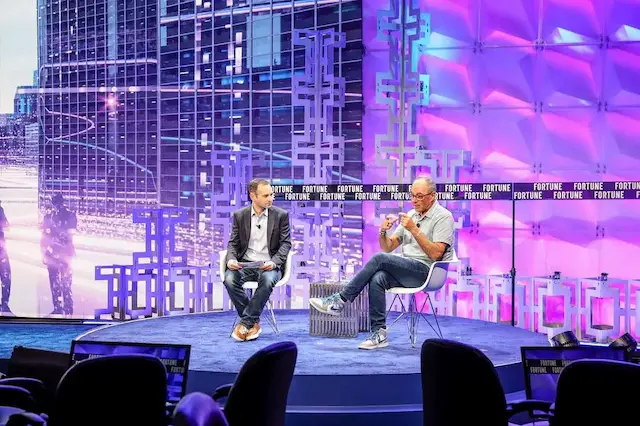Netflix将花落谁家?
|
上个月,在线视频流媒体服务商Netflix股价暴跌。亿万富翁马克•库班随后增持了该公司股份,原因是他相信前者是一个绝佳的收购对象。无论他是对是错,更有趣的问题在于,谁才是最符合逻辑的买家。
截至今年第三季度末,Netflix拥有5010万用户。对于很多公司来说,Netflix十分诱人,因为它们都想利用其不断增长的庞大用户群体。今年,该公司还在六个欧洲国家取得了实质性进展,扩大了全球覆盖范围,提升了知名度。同时,Netflix开始制作原创连续剧,比如《纸牌屋》(House of Cards),另一部原创连续剧《女子监狱》(Orange is the New Black)也带来了不俗的回报。
然而,Netflix的市值已经达到230亿美元,目前股价对应的市盈率超过了100倍。对大多数买家来说,该公司都可能过于昂贵。这缩小了潜在买家的范围,也要求他们在实施收购时拿出有力的战略依据。
显而易见而且经常挂在人们嘴边的潜在收购者有两家,分别是亚马逊公司(Amazon)和苹果公司(Apple)。它们既有资金又有收购意愿。不过,问题在于这两家公司都有自己亲手打造的流媒体视频产品,而这些产品和Netflix存在竞争关系。考虑到内容上的重叠,收购Netflix可能会节省两家公司用于购买内容的资金,但这同样有可能挤占它们现有产品的空间,扰乱这些产品的战略目标。
亚马逊在流媒体市场中的份额为1.6%,依然很小。但该公司拥有庞大的视频库,而且已经把尊享即时视频(Prime Instant Video)作为营销手段来吸引更多的该服务付费用户。按照同样的思路,亚马逊可能借助收购来扩大尊享服务用户群,并让消费者长期使用这项服务;或者,就像收购在线游戏网站Twitch那样,拿下一些切实与自身产品有互补性的公司,而不是让收购造成业务重叠。
考虑到这一点,亚马逊收购Netflix的最主要原因应该是向后者的用户推广尊享即时视频服务。但Netflix的平均年费(约100美元)和尊享用户的年费(99美元)相当,而且消费者不太可能重复付费,如果收购Netflix,亚马逊就可能被迫把这两项服务捆绑在一起,这实际上相当于把尊享服务白送给Netflix用户。同时,还不清楚有多少Netflix用户已经开始在亚马逊网站上购物(或者有可能在双方不合并的情况下自然而然地成为亚马逊用户)。
所有这些都表明,亚马逊和Netflix应该在营销方面进行某种形式的合作,但不一定非得合并。
和Netflix不同,iTunes通过下载来出售内容。Netflix的订阅模式可以和iTunes形成互补。但iTunes在下载市场的份额高达65%。很难想象,在可以单独出售各项内容的情况下,苹果公司会提供内容订阅服务,从而让自己的收入面临风险。同时,尽管iTunes的收入增速确实正在放慢,但鉴于用i字头产品构建独立体系的策略一直都非常成功,苹果不太可能因为引进非嫡系产品而淡化自己强大的品牌平台。 |
After Netflix’s stock dropped significantly last month, billionaire Mark Cuban raised his stakes in the company on the conviction that the online video streaming service is a prime takeover target. Regardless of whether he’s right, the more interesting question is who could be the most logical buyer? With 50.1 million subscribers at the end of the third quarter, Netflix is an attractive target for a wide range of companies looking to leverage its large and growing subscriber base. The company has also made meaningful inroads into six European countries this year, expanding its global reach and brand name. Its moves to produce original programming like House of Cards and Orange is the New Black has also paid off handsomely. But with a market capitalization of $23 billion and trading at a multiple north of a 100 times earnings per share, the company may be too expensive for most buyers. That narrows down the field of potential acquirers and demands a solid strategic rationale for a takeover. Two obvious, and often touted, potential suitors are Amazon AMZN 0.58% and Apple AAPL 1.30% , which have the cash and appetite to acquire a company like Netflix. The problem, however, is that both Amazon and Apple have competing streaming video products that are established in their own right. Buying Netflix might save them money in content acquisition because of the overlap, but it could also cannibalize their existing offerings and possibly interfere with the strategic purpose those offerings serve. While Amazon’s 1.6% share of the streaming market is still small, it boasts a large video library and uses Prime Instant Video as a marketing tool to increase its paid membership for Prime. Along the same lines, Amazon is likely to make acquisitions that expand its Prime membership and keep customers hooked to the program for the long-term, or as in the case of its acquisition of online gaming site Twitch, buy companies that truly complement its offerings instead of doubling up on them. Given this, the primary reason to buy Netflix NFLX -0.03% would be to sell Prime to its subscribers. But since the average annual cost of Netflix (about $100) is the same as a yearly Prime membership of $99, and since consumers aren’t likely to pay the fee twice, Amazon would be forced to bundle the two — effectively giving away Prime for free to reach Netflix subscribers. It’s also unclear how many Netflix subscribers already shop at Amazon (or could become shoppers naturally without a merger between the two companies). What all this implies is that there is rationale for some type of marketing partnership between Amazon and Netflix, but not necessarily a merger. By contrast, iTunes sells its content via downloads. Netflix’s subscription model would be complementary to its service, but with a hefty 65% of the downloads market, it’s hard to see why Apple would risk this revenue stream by offering subscription-based content that it can sell individually instead. Also, it’s true that iTunes’ revenue growth is slowing, but Apple’s strategy of a self-contained universe of i-products has been so successful that it is unlikely to dilute its powerful branded platform by inviting an outsider into the family. |











